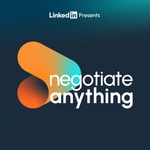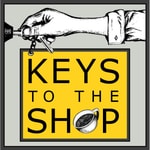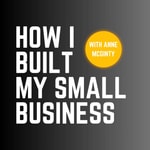Looking Outside – Details, episodes & analysis
Podcast details
Technical and general information from the podcast's RSS feed.

Looking Outside
Jo Lepore
Frequency: 1 episode/16d. Total Eps: 76

Recent rankings
Latest chart positions across Apple Podcasts and Spotify rankings.
Apple Podcasts
🇫🇷 France - marketing
01/06/2025#97🇫🇷 France - marketing
31/05/2025#89🇫🇷 France - marketing
30/05/2025#75🇫🇷 France - marketing
29/05/2025#61🇫🇷 France - marketing
28/05/2025#31🇬🇧 Great Britain - marketing
27/05/2025#81🇩🇪 Germany - marketing
20/05/2025#57🇩🇪 Germany - marketing
10/05/2025#71🇨🇦 Canada - marketing
16/04/2025#65🇩🇪 Germany - marketing
12/04/2025#75
Spotify
No recent rankings available
Shared links between episodes and podcasts
Links found in episode descriptions and other podcasts that share them.
See all- https://sdgs.un.org/goals
149 shares
- https://businessesgrow.com/
146 shares
- https://waitbutwhy.com/
85 shares
- https://twitter.com/thebrainybiz
414 shares
- http://www.twitter.com/markpollard
172 shares
RSS feed quality and score
Technical evaluation of the podcast's RSS feed quality and structure.
See allScore global : 83%
Publication history
Monthly episode publishing history over the past years.
Looking Outside Insights BS: Ryan Barry, President Zappi
Season 5 · Episode 58
mardi 6 août 2024 • Duration 37:35
Today we’re taking a no BS look at the world of customer insights, leadership and business visioning with the President of software company Zappi, the ever-passionate and transparent leader, Ryan Barry.
Having led Zappi for over four years, Ryan shares his no holds barred take on company leadership and people leadership, and it’s all anchored on authenticity. Years ago, Ryan says, he was called out by his wife on having a ‘work voice’ and realized he shouldn’t be wearing 50 different masks depending on who he’s speaking with. He says this new transparent approach to dealing with people and stakeholders alike makes his life easier, and ensures his leadership style is more human.
Ryan is also committed to communication, or even over-communication, dropping casual and informal voice messages and videos as news evolves in his company regularly, to ensure no one has to second guess what is happening, and that business updates are intentional and impactful.
To negate a possible consequence of this – dominance and over-assertion - Ryan says he leans into curiosity, asking questions openly on things he is not knowledgeable about and deferring to the experts. “Your job sometimes is just to listen,” he says.
Jo and Ryan also discuss the future of the workplace, particularly as more remote, flexible and virtual working styles are implemented, and spontaneous moments to ‘break bread with people’ in a physical office become fewer. Nearly 70% of Ryan’s staff are on the other side of the planet to him. He’s cognizant of the necessity to build and nurture relationships and believes that cannot be replaced by physically being in the same place together. Trust, collaboration and understanding are best built in real life, Ryan says, as are new ideas generated from sporadic and unplanned moments ‘bumping into’ people. Whatever new technological automation and outsourcing the future holds for the workplace, this ability to connect, human to human, won’t be replaced.
Holding a personal brand of his own, supported by his podcast Inside Insights and newsletter Ryan’s Rants, Ryan regularly shares reflections on the industry he operates in and where customer strategies go wrong. More and more companies are driven by two polarized objectives: short term earnings vs long term goals, awards and accolades vs ads that actually drive sales, political stances vs internal policies. Ryan highlights the importance of being frank with yourself on why business decisions are made, of taking input from your staff (whether you like what they say or not), of building principles that create consistency for future scenarios, and of ensuring your business actions match what you say. “People’s bullshit meter is way up”, and Ryan says that’s a good thing.
>>>
To look outside, Ryan goes outside to get lost in nature and mountains, usually with his dog. Getting out from the physical reality he's surrounded by allows him to tap into another level of ideas in his subconscious.
>>>
Ryan Barry oversees Zappi's global business operation leading the companies growth and impact internally and externally and serves as a member of the firm's executive leadership team. Prior to Zappi, Ryan worked for GMI, an online survey solution provider which was eventually acquired by Kantar and also started a dog care company which was sold in 2015 and a non profit aimed at raising money for less fortunate children.
In addition to his work at Zappi, Ryan serves on Michigan State’s advisory board for their MR program. Ryan lives outside of Boston with his wife, two sons, daughter and his two hound dogs and loves the great outdoors and Boston sports.
- Follow Ryan on LinkedIn
- Subscribe to
Looking Outside Plant-Based Food: Marc Coloma, CEO Heura & Food Activist
Season 5 · Episode 57
mardi 16 juillet 2024 • Duration 44:03
In this episode, we’re taking a look outside the very familiar food industry and a closer look at the emerging sector of plant-based food, with food activist, entrepreneur, and CEO and Co-Founder of Heura, Marc Coloma.
Marc’s mission to transform the food industry starts with his own company, which acts as a symbol for what is possible; investing in food innovation to solve not just taste and nutrition challenges, but also ones related to social issues.
Social activism is something Marc has been passionate about since he was a ‘rebellious’ child. His life and career were shaped by a drive to ask 'why?' and a desire to transform anger at what is imperfect in the world into a vehicle for positive change. As a ‘good rebel’, Marc is determined to shape his work around things that matter to him personally.
In many ways, Marc’s ambition (and success) in this foray represents a modern shift in business; where people recognize a friction that exists between values and behaviors and work to close that gap. Marc calls it the 21st century way of doing business: companies already do make people’s lives better by providing solutions to existing problems, but now they can also make “multiplied impact in the value chain”.
While shifts to address environmental, social and nutritional challenges need to take place across many sectors, for Marc, the focus started with the food industry, where many of the issues arise from modern day lifestyles. We are good at scaling solutions quickly in the food industry, he says, but equally at scaling their consequences. This is part of the impetus for the plant-based movement towards alternative solutions, or as Marc and his team call them, ‘successors’ of the current food system.
Plant-based food are under a tremendous amount of scrutiny today, not just from the media but from frustrated customers and disappointed food retailers. Marc says a part of the declining performance is the fact that the industry was scaled too fast in a bid to tap into (warranted) enthusiasm to transform the food sector. But here speed came at the cost of a great customer experience, and most importantly, great taste. Marc says with transforming the food sector in sight, we forgot about the most critical target to win over – the customer.
Heura, the plant-based food company Marc co-founded in 2017 and leads today, is outperforming its European competitors on taste. Marc stresses this is pivotal in changing consumer behavior, while supporting the rituals that people love. Taste will always win, and you may get one shot to prove that to customers.
Marc believes plant-based food is only in the ‘early beginnings of potential’ and that we must expand frontiers of what we thought was possible. Planetary limitations are a reality of the future (put simply: many more people, consuming many more calories) and must be addressed in new ways.
Jo and Marc also discuss how, in the end, it’s easy to blame others for inertia in current food systems, but that blaming an entire industry, sector or category is not helpful, particularly when change starts with us – with individual actions. It’s also not helpful to reject or distrust a growing and emerging industry like the plant-based one, especially one that does not exist to destroy anything but to help maintain the traditions we hold close to our hearts.
>>>
To look outside, Marc learns through others, hearing first hand testimonies from people that spark unique ideas and an interest to learn more deeply about something new. Meanwhile, time in nature, hiking and sports like boxing, and yoga help him stay grounded.
>>>
Marc Coloma is a food activist and CEO at Heura. Born in Barcelona, Marc has been involved in social activism since he was 16 years old. In 2015 he decided to take part in an entrepreneurship
Looking Outside AI: Usama Fayyad, Data & AI expert, Institute for Experiential AI
Season 5 · Episode 48
mardi 2 janvier 2024 • Duration 34:52
On this episode of Looking Outside we explore the reality and risk behind the hype of AI, with Executive Director of the Institute for Experiential AI at Northeastern University, Founder of Open Insights, Data Scientist and AI expert, Usama Fayyad.
Usama has been in the field of AI for three decades and has lived through three AI hype peaks followed by three winters. In this conversation he contextualizes how the current infatuation with the ‘eloquence’ of data-driven AI stacks up.
Usama first points to an important problem with AI - not with the algorithm but with the data sets that inform the outputs. As the first person to ever hold a Chief Data Officer title, Usama stresses how critical it is to scrutinize the data sets that are feeding the algorithm, as these large data sets are really the breakthrough in this wave of AI, he says, not the machine learning advancements, and the data is filled with errors.
Jo and Usama discuss the onus of the user in not over relying on the AI for our thinking, as the risk here is equally in erroneous output as it is in missing the ‘true contribution’ behind the source material. Usama puts this plainly to say AI has the potential to speed up banal tasks but can, for other tasks, be completely inappropriate – particularly when these require critical thinking and finding what’s between the lines. The algorithm is auto completing answers based on information fed into it: that information may be incorrectly summarized, incompletely inputted, biased, misrepresented or just plain incorrect.
Usama says the user must be aware and in control, because at the moment most generative AI tools are like black boxes that hold things nobody understands. And when the AI gets it wrong, it’s up to us to catch the mistakes, otherwise a world of hurt in the form of misinformation, misrepresentation and perpetuation of bias lies ahead.
>>>
Jump to key points in the episode:
- 4:28 The true advancements of AI and the current hype cycle
- 8:22 Data curation that leads to misinformation, bias and unpredictability
- 12:40 Impact on critical thinking with over-reliance on AI
- 16:30 Irresponsible and inappropriate use of AI
- 22:00 Dangerous versus safe application via new tools
- 25:00 Deepfakes, misinformation and disinformation by bad actors
>>>
To look outside Usama works to catch his own bias – bias built on his personal experience, training, and business objective. He does this by taking a situation and trying to see its effect on someone's live he wouldn't normally consider. This forces him to consider interesting aspects he wouldn't otherwise like social and ethical impacts that may arise. He marries this with talking to people, specifically in asking questions he knows the answer to, seeking to understand why a different answer may be given.
>>>
Usama joined Northeastern University Khoury College of Computer Science as Professor of the Practice, and the Office of the Provost as the Inaugural Executive Director of the Institute for Experiential AI. He continues as Chairman of Open Insights, a company he founded as a technology and consulting firm in 2008 after leaving Yahoo! to enable enterprises to get value out of their data assets and optimize or create new business models based on the new evolving economy of interactions.
He was the first person to hold the Chief Data Officer title when Yahoo! acquired his second startup in 2004. At Yahoo! he built the Strategic Data Solutions group and founded Yahoo! Research Labs. He has held leadership roles at Microsoft and founded the Machine Learning Systems group at NASA’s Jet Propulsion Laboratory.
Usama has published over 100 technical articles on data mining, data science, AI/ML, and databases. He holds...
Looking Outside Disruptive Technology: Dr. Grzegorz Ombach, Airbus | LIVE from Dubai
Season 5 · Episode 47
mardi 12 décembre 2023 • Duration 16:58
Looking Outside comes to you LIVE from the Dubai Future Forum, the largest gathering of futurists in the world.
In this conversation we talk about disruptive technology and transformative blue sky innovation with Airbus Senior Vice President and Head of Disruptive Research and Technology, Dr Grzegorz (Greg) Ombach.
Greg describes the mindset shift he experienced in leading innovative transformation across various industries, each with their own lifecycle - from Telecommunications with 1 to 2 year innovation cycles, then to Automotive where it moved out to 7-10 years and now in the Aerospace industry where he has 30-50 years in sight. As Greg considers future disruption, he is looking out to the next 50 years with a clear goal in mind. For Airbus, this takes the ambition of the company from accessible air travel, to sustainable air travel, and then to aerospace.
Greg describes how this focus on transformation through disruptive technology requires active monitoring and proactive imagining. At Airbus, this is enabled firstly by enlisting open and curious people called 'Scouts' whose role it is to spot new trends across varied regions. These people are inhouse engineers who have a finger on the pulse of the air travel and aerospace ecosystem in which they operate daily and are therefore in the best position to assess the viability of the trends for the business. Accompanying this is the center of research where the 'Blue Sky Thinkers' live. Their job is to come up with moonshot ideas that are turned into pilots.
Jo and Greg also discuss the need to look more broadly, assessing a product based on its ecosystem - what keeps the structure standing on the outside as well as the components that keep it relevant on the inside.
--
If Greg was not a futurist, he would be sailing around the world. He gets energy and drive from exploring new places, from discovering new places and being able to adjust the course based on the conditions.
--
Dr Grzegorz (Greg) Ombach, is Head of Disruptive Research & Technology, Senior Vice President at Airbus. Greg is passionate about managing technological innovation from an idea to broad market adoption. His combination of technology, leadership and commercial expertise together with a truly global outlook, having worked across Europe, the USA and China, puts him in a solid position to drive international market success for high-tech innovations. As a Head of Disruptive R&T, he shapes Airbus’s ability to be the global leader in innovation and future technologies across all Airbus divisions. He works very closely with all businesses and divisions globally. Before as Executive Vice President, Head of Battery Systems Business and Group Strategy and Innovation at Dräxlmaier, he was responsible for the strategy for the business and led the entire product commercialisation, from the initial concept to high volume production of cutting-edge technology in a premium market for the automotive sector. One example is the first high volume production of an 800V battery system for the Porsche Taycan. Earlier, he worked at Qualcomm as a Global Vice President and General Manager of a breakthrough automotive technology licensing business. He also has experience from Siemens VDO, Continental and Brose.
Greg holds a PhD in Electrical Engineering from the Silesian University of Technology, Poland and a Certificate in Global Management from INSEAD, The Business School for the World. He has also been awarded Guest Professorship at the Zhejiang University in China.
- Connect with Greg on LinkedIn
- Learn more about Airbus
--
Looking...
Looking Outside Sustainable Design: Josef Hargrave, Arup | LIVE from Dubai
Season 5 · Episode 46
lundi 11 décembre 2023 • Duration 18:01
Looking Outside comes to you LIVE from the Dubai Future Forum, the largest gathering of futurists in the world.
In this conversation we talk about sustainable design with Arup's Director of Foresight, Josef Hargrave. Arup is focused on creating more sustainable built environments, and Josef speaks to how designing for the future needs to be anchored in decisions for the present, by understanding deeply the structural limitations and infrastructure of today.
Josef details several projects he's run for designing out to 2050 across geographies exploring building for cities, having worked in and with over 30 cities around the world. He boils success down to context: it's easy to identify what is changing in the world, but the effort should be in what it means to the project and stakeholders holding the brief. Contextualizing the environment you're designing for will influence how you design for the future and the future populations living in this infrastructure.
Jo and Josef also discuss how foresight done well should ultimately be about making yourself useful to the organization that you're a part of. As the company evolves over time, as Arup has in the 13 years Josef has been there, the application of foresight needs to evolve with it.
--
If Josef was not a futurist, he would be an artist or designer. Or open a Chinese restaurant, so he can craft something by and for himself.
--
Josef Hargrave is Global Foresight Leader responsible for the delivery of Arup’s foresight services, tools, and projects globally, leading a multi-disciplinary team of programme managers, designers, and consultants that specialise in trends research, design thinking, strategic planning, innovation programmes, thought leadership, and vision making for both internal and external clients. Over the past 10+ years, Josef has delivered projects in over 20 countries, working for some of the world's leading organisations in property, technology, chemicals, mobility, energy, healthcare, manufacturing, consumer goods, and finance.
Outside of Arup, Josef is an Associate Lecturer at Central Saint Martins as part of the MA for Innovation Management (London), a member of the World Cities Summit Science of Cities Knowledge Council (Singapore), a member of the International Panel of Experts at Urban Redevelopment Authority (Singapore), a member of the Friends of the Forum at Dubai Future Foundation (Dubai), and a member of the Advisory Board at Manchester Institute of Innovation Research (Manchester).
- Connect with Josef on LinkedIn
- Learn more about Arup
--
Looking Outside is a podcast dedicated to exploring fresh perspectives of familiar business topics. The show is hosted by its creator, Joanna Lepore, consumer goods innovator and futurist at McDonald's. Find out more at looking-outside.com.
Connect with Jo and join the Looking Outside community on LinkedIn.
--
All views are that of the host and guests and don’t necessarily reflect those of their employers. Copyright 2023.
OBOY &
Looking Outside Retail: Tim Nash, Retail Creative
Season 5 · Episode 45
mardi 14 novembre 2023 • Duration 36:59
Retail, shopping and lovers of physical activations, this one is for you. But perhaps it’s for all of us who look at bringing our brands to life in physical spaces. Today on Looking Outside we’re speaking with top voice in retail, Curator of Shop Drop Daily & Chief Thinker at iiiF, Tim Nash.
Tim's passion for brands led to his career specialty in shop and retail design. He fell into the fashion industry, starting in visual merchandising, and then fell in love with inspiring brands to best show up in physical spaces.
As a natural creative who was always good at art, Tim helps brands find ways to reach their consumers in ways that spark a connection through visual cues, smart use of space, and rethinking the DNA across platforms.
This is a critical part of the brief, Tim says, as activations or campaigns built for a specific channel is old fashioned thinking - it breaks apart brand cohesion and dilutes the message. Brands need to find new ways to connect the dots across platforms, to offer the consumer something that makes them feel special but also delivers on the unique brand promise, no matter where they’re shopping.
Having researched, created and curated in the retail space for over 20 years, Tim describes how the pandemic was a critical turning point for retail that not all brands saw or understood. Retail spaces designed for the city center, as the best (or only) way to buy what you need, is not how the world operates now. New brands are able to build a community without a physical space, and to shape their DNA to live across all sub-channels. A lot of older brands stuck in the middle still think retail first, with other channels ‘thrown in’.
Jo and Tim discuss other critical moments of pause that need to take place for retail to properly set it up for the future – including the one where we re-assess the environmental or ethical impact of ‘fast’ retail, shopping and fashion. Tim says retail has traditionally been painted with a negative brush, but it has the ability to wash this away if we can move past cookie-cutter, formulaic and old school ways of creating not just retail places, but brand spaces.
--
To look outside, Tim finds physical spaces that allow him to digest information and think through things. This can be city walk, a long train ride, or strolling through galleries and art exhibitions. It doesn’t have to be a grand experience, just something small to properly disconnect with the physical world, and connect with his thoughts.
--
Tim Nash is a strategic, forward-thinking creative dedicated to crafting immersive physical brand experiences that captivate the consumer.
With an extensive background spanning two decades in the retail industry, Tim has been the architect behind a variety of celebrated global brand activations and visual concepts that engage and delight customers IRL.
From a shop floor start to leadership roles within global businesses, Tim currently collaborates with a diverse portfolio of brands to curate innovative campaigns that relevantly talk to their audience.
Beyond this, he's the driving force behind Shop Drop Daily, a pivotal inspirational resource and authoritative voice on the future of the industry.
- Follow Tim on LinkedIn and here
- Sign up to Shop Drop Daily shopdropdaily.com & on Instagram
- Learn more about
Looking Outside Sustainability: Bob Langert, Sustainability Leader
Season 5 · Episode 44
jeudi 19 octobre 2023 • Duration 55:12
Today we’re talking about the big topic of Sustainability within big business. Former Chief Sustainability & Social Impact Officer at McDonalds, Bob Langert, joins the show and shares his three decade long journey in making environmental change happen at one of the biggest organizations in the world.
An environmental activist at heart, Bob shares how he was able to take a topic he cared deeply about but was low on the company priority list, and over time use his passion to make people notice and act. Sustainability started as Corporate Social Responsibility and Bob recalls how in the 1980’s it was just starting to gain prominence and it took a long time for the topic to reach the mainstream status it has today in business. Companies need to be willing to change if they want to compete in a future environment 20 years from now which will look different to how it does today. Bob stresses the need for change agents within that; fewer people laying low and trying to stay out of trouble, more people who are open, patient and bring big ideas. Ultimately that passion and persistence helps the business, because as Bob says, “Businesses that are satisfied and content are going to die.”
Bob does recognize that a key challenge in getting action on sustainability issues is trying to force it, either by being too emotional or pushing too hard. He describes how over time he achieved success by creating connections with people inside and outside the organization. These relationships rested on truthfulness, trust and empathy; putting yourself in others’ shoes to see different ways of influencing them. That empathy allows you to see new allies, as often we assume people don’t care, or will not be supportive, but they can surprise you. In fact some of your harshest critics can become your collaboration partners for change, or even your public advocates.
Jo and Bob also discuss the need for companies to be more proactive and preemptive, but that often, that comes with little glory, as a hero in a crisis is easy to find, but credit for preventing a problem often never happens. But issues, like critics, will never stop coming, and Bob says that’s a reality you need to accept, and a target you need to bear on your back, when part of a big organization that needs to make money (and there’s nothing wrong with that).
--
To look outside, Bob reads a lot, particularly other perspectives of leadership and change through biographies. He also relies on travel to observe people across settings and cultures. He treats these as learning experiences that help him see things differently and promote a push beyond complacency, or accepting that 'things are the way they are'.
--
Bob Langert led McDonald’s Corporate Social Responsibility & Sustainability efforts for more than twenty-five years before retiring in 2015. Currently, he provides corporate sustainability consulting through Mainstream Sustainability.
Bob has been engaged in social responsibility issues at a global level since the late 1980s, leading environmental affairs, animal welfare, and Ronald McDonald Children’s Charities’ grants. He was appointed McDonald’s first vice president to lead sustainability in 2006 with contributions spanning sustainable fish, coffee, palm oil, beef, packaging, extensive animal welfare progress, protecting the Amazon rainforest, nutrition strategy and CSR reporting, measurement, and accountability.
His book about McDonald’s sustainability journey, The Battle To Do Good: Inside McDonald’s Sustainability Journey, was published in January 2019.
Langert received his BA from Lewis University and his MBA from Northwestern University. In 2007, Langert was named as one of the 100 Most Influential in Business Ethics by Ethisphere.
- Follow Bob on
Looking Outside Dystopic Futures: Nik Badminton, Global Futurist
Season 5 · Episode 43
mardi 26 septembre 2023 • Duration 43:32
In this episode of Looking Outside we venture into dark futures with global futurist Nikolas Badminton, crossing over the line of realism into dystopia.
Nikolas spent 30 years at the front line of emerging futures, aiding organizations and governments in the anticipating risks that lie ahead and shaking people out of unrealistic expectations. He says now he is hired to do the type of work he’d normally get fired for, as, often, Nik is tasked with telling people the future they are excited about is not going to happen, and prompting frank conversations. He uses ‘impossible’ scenarios to paint preposterous futures, those ideas about the future that appear ridiculous, in order to bring people out of their self interests or away from a yearning for nostalgia.
While positive futures are important, Nik says facing into the fact that ‘bad stuff does exist’ is the important starting point. We often see plans or goals that are so far out, particularly in government policies, that are psychologically disconnected from the people planning them and therefore aren’t designed to provide anything tangible enough to motivate people to act.
Jo and Nik also discuss the need to help organizations see beyond the ‘garbage’ that is out there about emerging risks and trends, often sensationalized, by painting change as accretive, with layers of complexity constantly building, instead of as hinging on a ‘switch’ from one state to another. Nik describes the need to bring people into future states by first taking them into the hybrid state where things are transitioning, seeking out evidence of the future to provide the missing link between disruption and strategy. Often we hear change is happening faster than ever before, but Nik counters that; “If you think things are happening quickly you’re not paying attention”.
--
To look outside, Nik moves away from his work quite literally by cycling around Toronto's water parks and trails, while listening to music or a podcast. He says through this, his thoughts become clearer and he is happier.
--
Nikolas Badminton is a global futurist speaker and Chief Futurist that mentors top executives and the highest levels of government to explore desirable futures, anticipate unforeseen risks, and strengthen strategic planning.
He has spent 30+ years working with leadership at over 400 leading organizations at the frontline of futures, strategy and disruption - including NASA, Disney, Google, Microsoft, Intel, IBM, WM, JP Morgan, Verizon, VISA, TD Bank, American Express, BISCI, ISACA, Rolls Royce, Procter & Gamble, US Department of State, UK Home Office, United Nations, and many more.
Facing Our Futures: How foresight, futures design and strategy creates prosperity and growth - is Nikolas’ number one best selling book and has been named as JP Morgan Private bank’s ‘Next Gen Pick’ for their prestige 2023 Summer Reading List to guide new leaders to ignite curiosity and embrace futures thinking.
Nikolas’ essential research has been featured by the BBC, VICE, The Atlantic, Fast Company, Business Insider, Forbes, Sunday Telegraph and many others. He appears on SIRIUSXM and CTV regularly, was a key advisor to the ‘Age of AI’ series with Robert Downey Jr, and appears in the Franklin Institute's series ‘2050’.
- Find out more about Nik Badminton at www.futurist.com
- Follow Nik on LinkedIn, YouTube and Blue Sky.
- Check out Nik's
Looking Outside Food with Purpose: Moritz Everding, Social Entrepreneur
Season 5 · Episode 42
mardi 5 septembre 2023 • Duration 38:30
In this episode of Looking Outside, we speak with someone crazy enough to think one company can make a difference, social entrepreneur Moritz Everding. Moritz founded food start up SOCHILI to act on his vision of creating food with purpose.
Combining his love of spice, his experience in business innovation and his passion for positive social change, Moritz created his business from Germany with far reaching impact into sub-Saharan Africa. On this episode, Moritz speaks to his conviction that a profitable business idea, whether by someone inside a big corporation, or an entrepreneur, can and should be pressure tested against social, ethical and environmental standards.
With his business model, Moritz balances the desire to make a big difference, in this case to 600 million people living without access to electricity, with the long term sustainability behind a small but growing product idea. He shares how his business was created to give back, visibly and transparently, directly to the farmers who supply the chilies for his hot sauce, most self-evidently in that for every bottle sold, the company is able to give first time access for its farmers to electricity for one day.
Jo and Mo also discuss the distinction between a profitable social enterprise and an NGO and that it’s still the responsibility of the start ups, who are often much more severely critiqued for their social, ethical and sustainability initiatives, to not act like charities, but to live by the standards of social consumerism in giving people more of what they want. In this case, a delicious, great looking, functionally-smart product that also ticks the socially-responsible boxes. It’s no easy feat but Moritz believes it is possible, and is motivated in encouraging more food businesses to go the same way.
Moritz’ belief that profit and purpose can go hand in hand also inspired him to start his Purpose Projects podcast where he gets to research a variety of topics changing the global food landscape, speaking directly to the social entrepreneurs working to make it happen. Social consumerism is the way of the future, Moritz says, and he is a living and breathing example of it.
--
To look outside, Moritz started a testing community. He asks community members, who all have varied perspectives that touch on the 17 SDGs, to pressure test (and taste test) the product against his impact model. Moritz says it's easy to get stuck in one lane, only listening to reaffirming positive feedback. To get outside his comfort zones, he seeks honest and varied perspectives from this community.
--
- Find out more about the 17 Sustainable Development Goals (SDGs): sdgs.un.org/goals
- Listen to the Seth Goldman episode mentioned on Activism
- Listen to Moritz' own podcast, the Purpose Projects Podcast (in German)
--
Moritz Everding is Founder & Managing Director of SOCHILI. Crazy about impact, crazy about hot sauces - Moritz is a social entrepreneur and advocate of purpose in the business world. As founder of the food start-up SOCHILI, he proves that social impact can also be tasty and spicy. With every single 'SOCHILI good hot sauce' the business empowers farmers in the Global South in the truest sense of the word: 1 hot sauce = 1 day of electricity.
- Connect with Moritz on LinkedIn
- Find out more about
Looking Outside Comedy: Monty Franklin, Stand-Up Comedian
Season 5 · Episode 41
mardi 22 août 2023 • Duration 39:31
Another Aussie joins us on Looking Outside to explore the power of laughter and positivity through comedy, with stand-up comedian, actor and TV personality, Monty Franklin.
Having lived in the US and toured 42 states over the last ten years, Monty has performed to more than a million Americans, and whether it’s on stage or at the bank, he speaks to the privilege of making people forget their troubles, even for a little while. He says laughter is one of the greatest things people can experience, and it's his role to find the kind of comedy that is relatable; stories about day to day life that despite being his, are not really about him but his listeners.
Story crafting has been an interest area for Monty since he was little, whether it was standing up and telling stories in front of his (funny) family, learning about the stories that shaped his home country of Australia, through indigenous culture, art and The Dreaming, or exploring the stories that live within other art forms like film or music.
Today he funnels his love of storytelling into his comedy shows or in his writing. Monty says all we leave behind on this earth are the things we hear, learn and pass down. So it’s either in the fields of education or storytelling that we pass on the history of the world and learnings of our time on it.
Monty speaks to positive stories about good people, doing good things for each other, as the ones we’re drawn to today, despite seemingly being divided by politics. Monty believes 99% of people are good and want to get along, and what helps in that is thinking outside the parameters of what we perceive as true; to consider a different take on things and not shut ourselves off to the evolution of ideas.
Jo and Monty also chat through the ups and downs of Aussie relocation to America, particularly in having to ‘start over’ no matter what success was previously gained, of benefiting from the strength of the Aussie brand (a testament, Monty says, of the “good people” that went international) but also wearing its novelty-factor … and even after so long feeling a little out of place.
While Monty admits that it is an ego-boost to be ‘in the limelight’, he says great comedians listen more than they talk. And while being on stage gives you a thick skin for critique, you’re not immune to feeling hurt from negative comments, or from having good and very bad days, which reinforces the need to strengthen your mental health to handle the swings of life, which ultimately should be expected because you can’t be up and laughing all the time.
--
To look outside, Monty listens to TED Talks in the morning. A 12 min video over breakfast on a range of topics gives him a fresh perspective and knowledge about something new and interesting. Monty says learning this way is quick and he gets something surprising from it every time. Once a year, Monty also takes a surf trip, with his friends and without a phone.
--
Monty Franklin is an Australian born stand-up comedian, actor, writer, and television personality, now based in LA.
He tours all over the world headlining some of the biggest comedy clubs and also opens for Rob Schneider, Joe Rogan and Jim Breuer.
Monty was on Ep #1794 of The Joe Rogan Experience and he is currently appearing in 'Real Rob' on NETFLIX, season 1&2.
He has had roles on 'New Girl' - FOX, 'Becoming Bond' - Hulu and is the creator and star of 'The Manny' - TV Pilot.
Monty’s numerous television stand-up performances include AXS TV's Live At Gotham, Channel 10s The Circle, Foxtel’s Stand Up Australia, and as part of The Comedy Channel’s special – The Best Of Stand Up and Comedy Gold.
Monty has produced, written and starred in two TV Pilots of sketch-comedy show No Monkeys on Bikes for Channel 7, co-hosted a weekly radio show on Fox...









